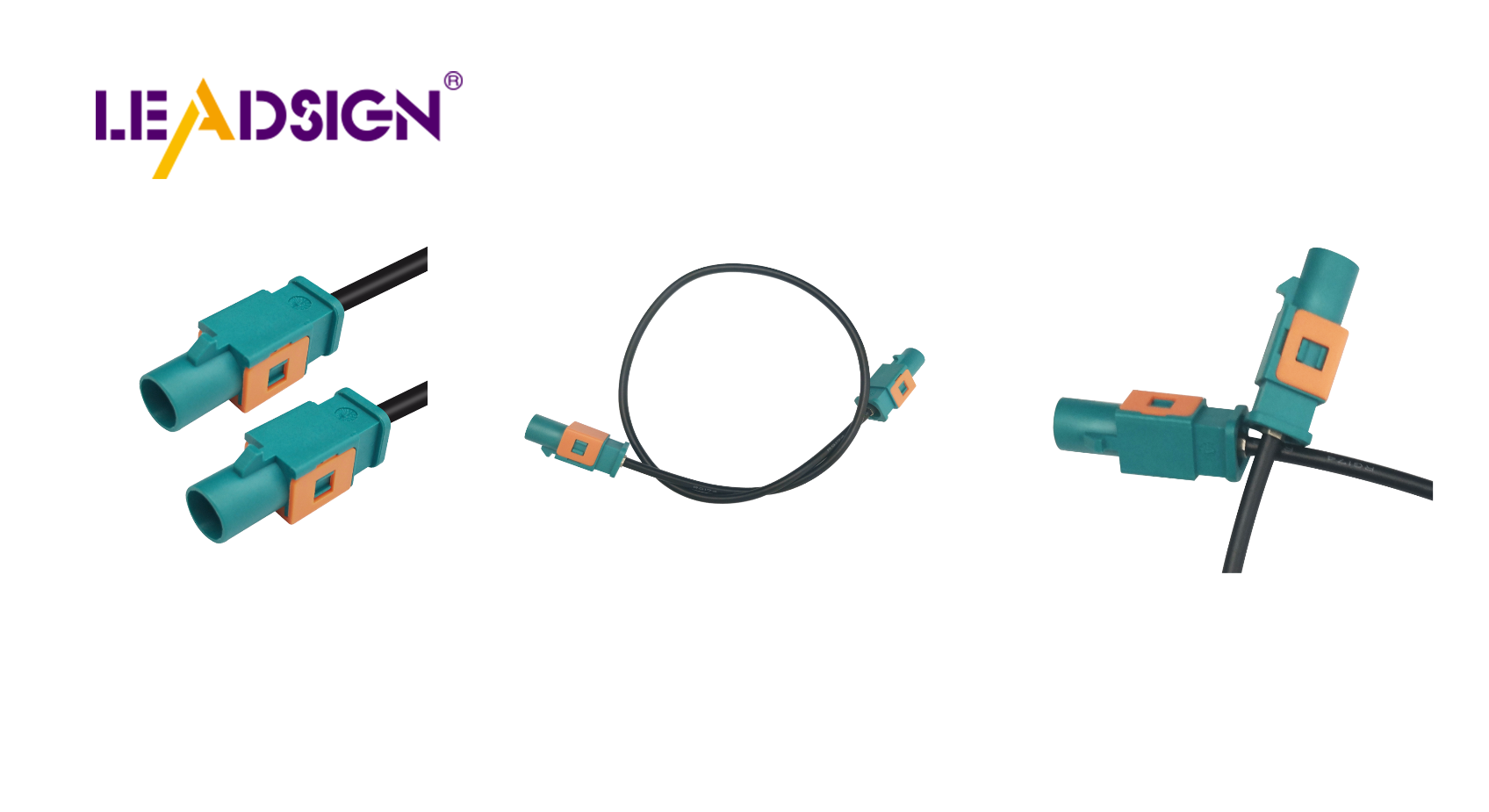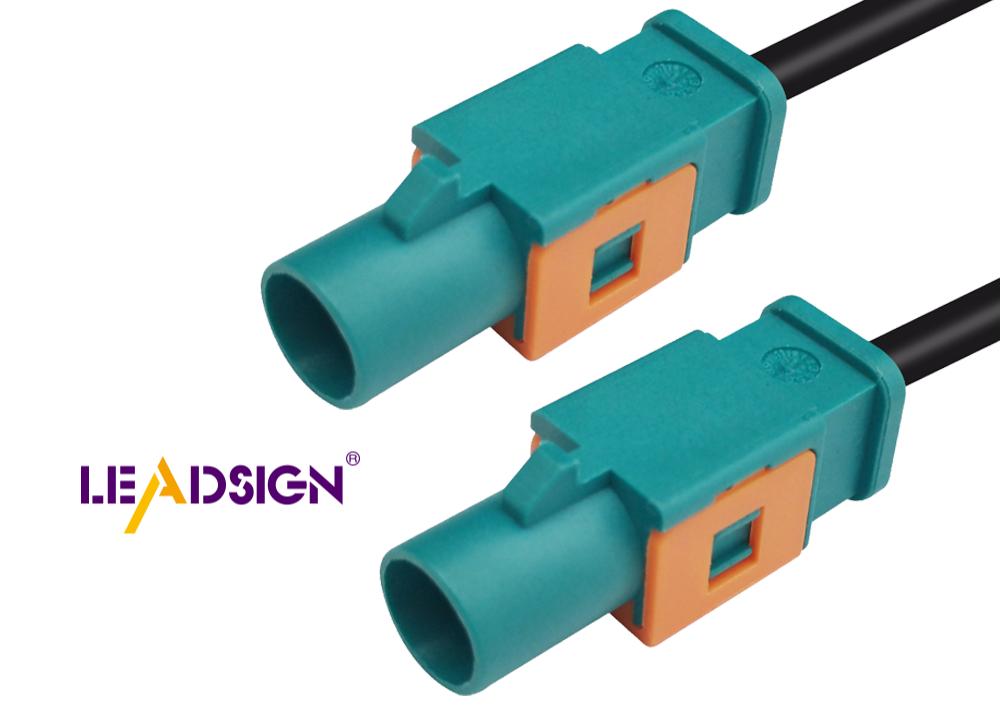How to Choose and Use Car Wire Connector Types Effectively

Choosing the right wire connectors automotive type is crucial. Quality connectors ensure your vehicle's electrical system functions efficiently, while poor connectors can lead to loose connections and issues. Opt for OEM connectors for enhanced performance. There are various types of automotive wire connectors, each designed for specific applications. Understanding these types helps you make informed choices, ensuring your car operates safely and smoothly.
Understanding Wire Connectors Automotive Type

When fixing your car's electrical system, knowing the different wire connectors automotive type is important. These connectors help parts talk and share power smoothly. Let's look at common and special connectors you might see.
Common Types of Wire Connectors Automotive Type
Butt Connectors
Butt connectors are often used in car wiring. They connect two wires end-to-end securely. You put the wire ends in each side and crimp them together. This connector works well for fixing or extending wires in your car.
Bullet Connectors
Bullet connectors make it easy to join and separate wires fast. They have a male and female end that click together. These are great when you need to unplug wires often, like with removable car parts.
Spade Connectors
Spade connectors, or fork connectors, link wires to terminal blocks or screws. Their fork shape lets you attach them without taking out the screw fully. They're handy for connecting things like speakers or switches.
Ring Connectors
Ring connectors give a strong connection by wrapping around a screw or bolt. They're used for grounding or when a lasting connection is needed. You'll find them on battery terminals and ground spots in cars.
Specialty Connectors
Weatherproof Connectors
Weatherproof connectors handle tough conditions well. They have seals to keep out water, dust, and dirt. These are key for outdoor use or places exposed to weather, keeping connections safe.
Quick Disconnects
Quick disconnects let you unhook wires quickly and easily. They're used where parts need removing fast, like lights or accessories. These save time during fixes or upgrades.
T-Tap Connectors
T-Tap connectors let you add new circuits without cutting the wire. They're good for adding extras to your car's system by clamping onto the wire securely.
Knowing these wire connectors automotive type helps pick the right one for your task. Whether fixing, upgrading, or customizing your car, choosing the right connector keeps your electrical system working well.
Picking the Best Connector
Choosing the right wire connectors automotive type is key for your car. It keeps the electrical parts working well. Think about a few things before deciding. Let's see how to check what you need and look at connector features.
Checking What You Need
Knowing Wire Size
Wire size is important when picking a connector. It shows how thick the wire is and how much power it can carry. Match the connector to the wire size to stop overheating or problems. Thick wires need connectors that handle more power. Always look at your car's wiring details to find out the right wire size.
Thinking About Where It's Used
Where you use the connector matters a lot. If it faces tough places like wet or hot spots, pick weatherproof connectors. These have seals to keep water, dust, and dirt out, making sure connections are safe. For inside or safe areas, normal connectors might be okay.
Looking at Connector Features
Material Strength
The stuff a connector is made of affects how strong it is. Strong materials, like those in OEM connectors, last in hard conditions. They fight off shaking, temperature changes, and moisture or chemicals. When picking a connector, think about materials like tin because they resist rust better than gold sometimes does. Strong connectors cut down on rust or breaks, keeping them working long.
Easy Setup
How easy it is to set up matters too. Some connectors let you connect quickly and easily, saving time when fixing things up. Look for ones with clear guides and needing few tools. Good crimpers and strippers help make setup easy and neat.
By checking what you need and looking at different wire connectors automotive type, you can pick the best one for your car. This keeps your electrical system safe and running well, lowering problems and boosting performance.
Using Car Wire Connectors Well
To keep your car's electric system working well, use wire connectors right. Getting ready and putting them on correctly is important for a strong connection.
Getting Ready
Collecting Tools
First, get all the tools you need. You will need a wire cutter, crimper, and maybe a heat gun if using special connectors. These tools help you work with wires carefully. Good tools make sure you cut cleanly and crimp tightly for a strong connection.
Getting Wires Ready
Next, get the wires ready to connect. Cut wires to the right length. Strip off about a quarter-inch of covering from wire ends. This shows the copper inside which is needed for a good connection. Make sure the bare wire is clean and not rusty. If it is dirty, use a brush to clean it.
Putting It Together
Stripping Wire
Stripping wire right is very important. Use a stripper tool to take off covering without hurting copper strands inside. Broken strands can make bad connections and cause problems. Make sure stripped part fits in connector but doesn’t stick out too much.
Crimping Connector
The next step is crimping the connector on the wire end. Put stripped wire into connector and squeeze with crimper tool to hold it tight. A good squeeze keeps wire safe and makes sure electricity flows well. Don’t squeeze too hard or you might break something.
Making It Secure
Finally, make sure everything stays put securely. If using heat-shrink connectors, warm them gently with heat gun until they fit snugly around connector. This adds extra cover against water or rust damage. For other connectors, check they’re tight so they don’t come loose later.
By doing these steps, you can use car wire connectors well! This helps your car’s electric parts stay safe and work better. use car wire connectors
Choosing the right car wire connectors is very important. It helps keep your car's electrical system working well. You learned about different connector types and how to pick the best one for your needs. Remember these key points:
Buy Good Quality: Good connectors stop problems and work well. Don't just pick the first one you see.
Make Sure Connections Are Tight: Getting ready and putting them on right is important. Use the right tools and ways to make a strong connection. Make Sure Connections Are Tight
Learn More: Look for more information or ask experts if you're not sure.
By following these tips, you can keep your car's electrical system safe and working well.
See Also
Enhancing Automotive Efficiency with HFM Connectors
Maximizing Data Transmission in Automotive with Advanced Connectors
Significance of FAKRA Connectors in Automotive Implementations

